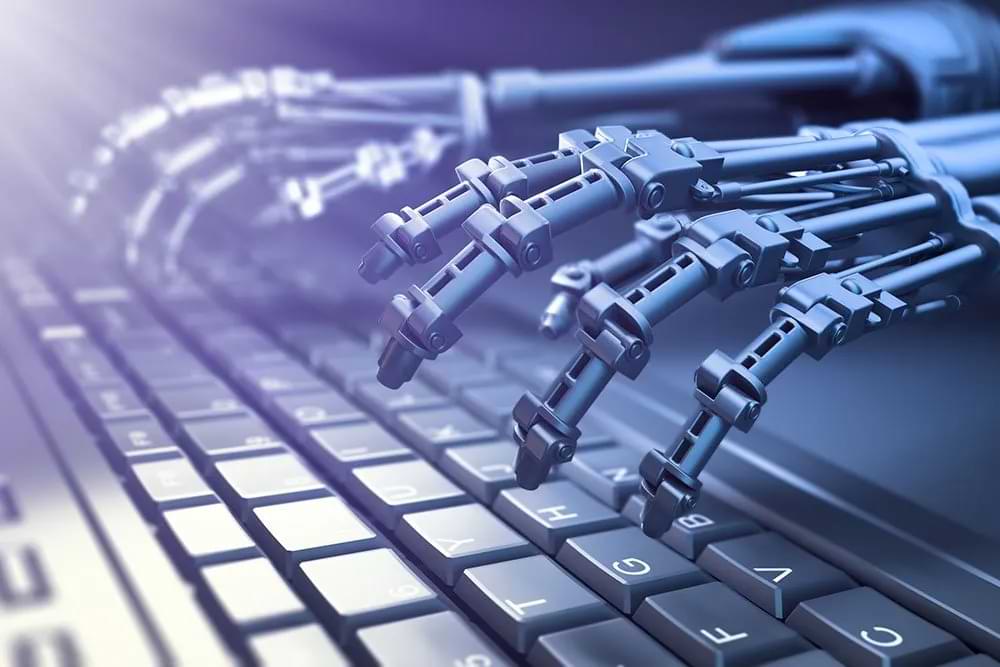Microsoft Just Unveils AI Agents That Will Shape Humanity’s Future

Strong 8k brings an ultra-HD IPTV experience to your living room and your pocket.
We haven't had a case where general-purpose technology diffused instantaneously everywhere.
Let’s say you wanted to build a field service agent that interfaces with Co-Pilot. All you have to do is provide a system prompt and tell it "I want you to be a field service agent." Point it to a SharePoint site containing relevant documents and add additional data sources. In this case, Dynamics serves as the system of record for field service.
You now have an output: a field service agent that you can interact with just like any other Co-Pilot conversation.
Microsoft has just shaken the tech world by announcing a new suite of autonomous AI agents for its Dynamics 365 platform marking a major leap in enterprise software. These aren’t your average chatbots—they promise to redefine business processes and reshape how we work. As expected, the rivalry with Salesforce is intensifying making this one of the most exciting developments in enterprise AI today.
Let’s dive into what makes these AI agents unique, how they compare with Salesforce’s recent launch and what it all means for the future of work.
Game-Changing Announcement That Shook the Tech World
Microsoft's latest offering includes 10 AI agents aimed at revolutionising sales, finance, customer service and supply chain operations. Scheduled for public preview next month, these agents demonstrate Microsoft’s ambition to move beyond basic AI tools such as Co-Pilot.
These new agents can make decisions in real-time based on intent, context and data insights. According to Brian Good, Corporate Vice President at Microsoft, these agents represent the apps of the AI era. They’re not meant to replace workers but to assist them by automating tasks freeing employees to focus on higher-value activities.
While previous AI tools were more reactive, answering questions or suggesting improvements, these new agents can orchestrate workflows across departments and anticipate next steps—without constant human intervention.
What Exactly Are Microsoft’s AI Agents?
Microsoft’s AI agents go beyond chat-based automation by tackling complex tasks. For example in finance they can automatically process invoices, predict cash flow problems and suggest corrective actions. In supply chain operations, they can identify bottlenecks, forecast disruptions and coordinate deliveries in real-time.
Unlike traditional chatbots these agents use advanced language models and pull data from Dynamics 365, Azure and other platforms. This allows them to analyse intent and context, predict outcomes, make decisions and manage processes autonomously.
One key selling point is seamless integration with existing Microsoft tools. These agents will be embedded within platforms like Teams, Outlook and Excel, ensuring businesses can adopt new technology without overhauling their workflows.
The Battle Between Microsoft and Salesforce
Microsoft’s AI agents are a direct response to Salesforce’s launch of Agent Force, a platform built on Salesforce’s Atlas reasoning engine. Salesforce CEO Marc Benioff has criticised Microsoft’s Co-Pilot dismissing it as "Clippy 2.0" referencing Microsoft’s 1990s virtual assistant.
Salesforce’s Agent Force focuses heavily on CRM (Customer Relationship Management), aiming to optimise customer interactions using its Data Cloud infrastructure. Microsoft however, is positioning its agents as multi-purpose tools that can enhance not just customer relationships, but also finance, supply chains and more.
This competitive dynamic highlights the companies' differing strategies: Salesforce’s strength lies in CRM while Microsoft integrates AI within productivity tools.
How Microsoft Plans to Reshape the Future of Work
Microsoft envisions a future where AI agents, Co-Pilot tools and human employees collaborate seamlessly. The goal is to automate repetitive tasks—like data entry or scheduling—allowing workers to focus on creative or strategic initiatives.
These agents can also predict next steps, recommend improvements and manage workflows without requiring human input at every stage. However as AI becomes more capable, job roles may shift toward managing and fine-tuning AI systems instead of performing traditional tasks.
While Microsoft insists the agents are designed to augment human worker automation may still raise concerns about job displacement.
For more insights on how AI is transforming the modern workplace, explore our detailed AI and software blogs designed for tech enthusiasts and professionals alike.
Real-World Applications of Microsoft’s AI Agents
In sales, these agents can track customer interactions, analyse sentiment in real-time and suggest tailored strategies to close deals. For instance they might alert a sales rep when a key customer shows signs of losing interest, suggesting actions to re-engage them.
In customer service, AI agents can predict common issues based on historical data offering solutions proactively. This shift from reactive service to proactive engagement could reduce friction and improve customer satisfaction.
In finance AI agents streamline processes by automating expense tracking, forecasting cash flow and identifying financial risks early. In supply chains, they analyse global logistics data to anticipate disruptions and reroute deliveries as needed.
Microsoft's Competitive Edge
One major advantage of Microsoft’s AI agents is their seamless integration with platforms like Teams, Outlook, Excel and Dynamics 365. This makes adoption easier as businesses can continue using familiar tools with the added power of AI.
Salesforce’s platform focuses more narrowly on CRM which gives it an edge in managing customer relationships. However Microsoft’s multi-purpose approach may appeal to businesses seeking comprehensive automation across multiple departments.
Challenges and Controversies in the AI Agent Race
While the potential of AI agents is exciting, there are serious challenges. Data privacy is a major concern as these agents need access to large amounts of enterprise data. Microsoft must ensure robust security protocols to prevent breaches.
Transparency is another critical issue. Organisations need to understand how these agents make decisions to ensure they are unbiased. Without transparency businesses may lose trust in AI systems particularly in sensitive areas like financial forecasting or customer service.
Job displacement is also a concern. Although Microsoft emphasises that AI agents will augment, not replace, human workers, uncertainty persists. Businesses will need to reskill employees to adapt to new roles in an AI-enhanced workplace.
Microsoft’s Vision vs. Salesforce’s Human-at-the-Helm Approach
Microsoft envisions AI agents collaborating closely with humans automating what can be automated, while workers focus on higher-level tasks. This "agents plus Co-Pilot plus humans" strategy positions AI tools as partners in the workplace.
Salesforce’s strategy emphasises human control over AI, positioning it as a support tool rather than a decision-maker. While this approach may appeal to organisations cautious about automation it could limit AI’s full potential if human involvement slows down decision-making.
Why Microsoft’s AI Agents Could Shape Humanity’s Future
If widely adopted, Microsoft’s AI agents could transform productivity by streamlining operations and reducing repetitive tasks. Workers would have more time for strategic and creative activities potentially leading to greater job satisfaction.
However, automation-driven job displacement is a real concern. Workers in areas like data entry and customer service may need to reskill or transition into new roles.
Beyond business, industries such as education, healthcare and logistics could also benefit from AI tools. But as AI takes over routine tasks, the line between human and machine decision-making will blur, raising ethical and accountability concerns.
Are We Ready for the AI Era?
As Microsoft rolls out its AI agents, the world stands on the brink of a major transformation. These agents represent the next wave of automation with the potential to reshape industries and change the way people work.
However, challenges like data privacy, job displacement and AI transparency will need to be addressed. Whether Microsoft’s vision becomes a reality will depend on how well these issues are managed—and whether AI can truly enhance, rather than disrupt, the future of work.
Note: IndiBlogHub features both user-submitted and editorial content. We do not verify third-party contributions. Read our Disclaimer and Privacy Policyfor details.


